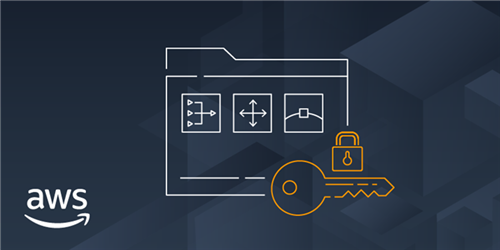More than 80% of enterprises have moved to the cloud by the end of 2020. It indicates that companies realize the importance of deploying their apps and data in the cloud and shifting their on-premises infrastructure to the cloud. The flexible nature of the cloud platform makes scaling and is customizing infra according to the changing requirements of the businesses.
The worldwide public cloud service market is predicted to be $331.2 billion by 2022. (Gartner)
According to a recent report by Gartner, by 2022, the public cloud will attain a $331.2 billion revenue. With an increasing number of organizations looking for better insights to drive greater business value, it has become more evident that the era of Intelligent Cloud has started.
The average cloud budget will be around $74 million by 2020. (Forbes)
According to Forbes, the average cloud budget will be around $74 million by 2020. The IaaS market will be $64.3 compared to $50.4 billion in 2020, approximately a 15% hike in one year.
Azure earned $13.4 billion in 2020.
Microsoft Azure is becoming popular now. It is the second most popular
cloud computing platform after AWS. In 2020, it crossed $13.4 billion in revenue, which is significantly improved compared to the previous year.
What is Microsoft Azure?
Azure is a cloud computing platform trusted by a large number of enterprises all over the world. It allows users to access and manage cloud services and resources securely and efficiently. You can store data and transform it depending on your needs and goals. You can even get started for free to understand this platform better.
Following are things you need to know about Azure-
-
It was launched on Feb 1, 2020, by Microsoft, a leading technology solution provider.
-
You can get started for free with pay as you go-on model.
It supports multiple programming languages such as Java, Node Js, C#, F#, Python, etc.
It has 42 data centres spread across the globe, with the highest data centres for any cloud platform. It is planning to increase the number of data centres to 54 in a short period.
How do Azure Work and its various services?
The Azure cloud offers 200+ services and is divided into 18 categories.
Azure provides more than 200 services, divided into 18 categories. These categories include-
-
Computing
-
Networking
-
Storage
-
IoT
-
Migration
-
Mobile
-
Analytics
-
Containers
-
Artificial intelligence
-
Machine learning,
-
Integration
-
Management tools
-
Developer tools
-
Security
-
Databases
-
DevOps
-
Media identity
-
Web services
Compute Services
Virtual Machine allows you to create VMs in Windows, Linux, or any other configuration within a small time frame.
Cloud Service enables you to create scalable applications within the cloud, where after deployment, the infrastructure is monitored and secured by Azure.
With service fabric, you can deploy microservices within seconds. Microservice is an application that is a bundle of other smaller applications.
Functions enable you to create applications in any programming language. It is one of the easiest ways to develop applications as you don’t have to worry about hardware requirements (taken care of by Azure); you have to provide the code.
Networking
Azure CDN allows faster delivery of content all around the globe with the use of high bandwidth. CDN service makes use of the network of servers placed strategically all over the world so that users can access data quickly.
Express Route enables you to connect your on-premises network to any cloud services via a private connection to allow communication to happen only between the enterprise network and the service you want.
The virtual network for secure and private communication between Azure services.
Azure DNS allows you to host your DNS domains or system domains on Azure.
Storage
Disk Storage allows you to choose from either HDD or SSD as your storage option and VM.
Blob Storage helps in optimization of large chunks of unstructured data such as text and binary data.
File Storage is a managed file storage service that can be accessed via industry SMB (server message block) protocol.
Queue storage offers stable message queuing for huge workloads and is accessible all over the world.
Benefits of Azure Cloud
Save Costs and Boost Profits
Ultimately, the underlying driver for moving from the existing on-premises enterprise data to the cloud is on-premises cost. The cost not only includes the direct cost of owning or licensing data equipment but also the cost of third-party service maintenance, and management, training, and policy.
On-site IT infrastructure maintenance requires space, construction, electricity, air conditioning, hardware acquisition, operating systems, network, physical security, and much more. Instead, you can migrate to the cloud and save all this trouble and money.
High Performance
The disadvantage of investing in an on-premises infrastructure is rigidity. It is a long-term commitment that prevents your organization from getting the latest technology. On the other hand, cloud services infrastructure gives you the flexibility and best-in-class equipment in the industry:
-
The latest Intel processors
-
The most optimized RAM
-
Petabit networking
-
SSD storage
-
GPU arrays
-
Even programmable hardware in the cloud
Security and Compliance
Many users with on-premises data infrastructure are concerned about security. The reality is that it is hard to be more secure and in control when you are hosting the infrastructure internally.
Cloud service providers such as Azure understand that millions of customers trust them for data security. As a result, it meets the highest security standards in the industry, set by healthcare, financial, and government institutions. Azure makes it easy for organizations to become SOC2, ISO27001, HIPAA, and PCI-compliant.
Authentication, authorization, logging, and auditing integrated across all cloud platforms. Security measures such as access control, role-based authentication, network and application firewalls, DDOS protection are standardized, tested, and available for installation and configuration.
Azure Data Box: Move Over Terabytes to petabytes of data to the cloud
Move all your data to Azure with a data box when you are limited by time, network costs, availability, or other inefficient copy tools. All the data is AES-encrypted, and devices are cleaned after uploading following NIST Special Publication 800-88 revision 1 standards.
Databox offers the following advantages for data migration: -
-
Transferring terabytes to petabytes of data with limited network connectivity.
-
Data is transferred in one go.
-
Your offline data gets stored securely and accessible in Azure’s online media library.
-
To transfer historical data to Azure for analysis and reporting with HDInsight.
-
The data is moved first in bulk, followed by incremental transfers over a network.
-
you can also set up periodic uploads in cases where a large amount of infor mation is created regularly.
Also Read: 10 Reasons You Should Be Microsoft Azure Certified
Migrate to Azure
Migrating to Azure can possess challenges such as controlling costs, picking the exemplary architecture, and scaling learning curves. Therefore, it is crucial to ensure that certified cloud experts or service providers perform every step from planning and assessing migration.
Although every enterprise's organizational structure and business objectives vary, specific patterns and practices can help in the reduction of downtimes, costs, errors and boost the speed and efficiency of migration.
Microsoft migration tools and services
1. Azure Migrate- A central hub for starting, executing, and tracking your Azure migration.
2. Azure Database Migration Service- An end-to-end solution for migrating multiple sources to cloud database platforms at scale.
3. Data Migration Assistant- A tool for assessing source SQL databases for potential compatibility issues on your target platform.
4. Data Access Migration Toolkit- A VS Code extension for analyzing Java and .Net source code and detecting data access API calls and queries.
Azure Migrate now delivers a unified, integrated experience across Azure and ISV tools, so you can pick the tool that best meets your needs.
Partners deliver value from migrating their customers to Azure:-
-
Unparalleled Innovation: Azure SQL Database, Azure IaaS, and Azure Migration / Azure Lighthouse
-
Unmatched Security: Azure Security Center, Azure Sentinel, and Confidential Computing
-
Unbeatable Offers/Programs: Free Extended Security Updates, Azure Migration Program, and ISV Certification Hub.
Enquire Now
.pngL.jpg)


.pngM.jpg)



(1).pngM.jpg)
COMMENT